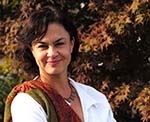Novel diversity to improve peanut
Principal Investigator
Soraya Leal-Bertioli
University of Georgia – Department of Plant Pathology / CAGT. 111 Riverbend Road, Athens, GA, USA
sorayab@uga.edu
Co-PIs:
David Kalule Okello
NaSARRI, P.O Box 56 Soroti, Uganda
kod143@gmail.com
David Bertioli
University of Georgia - Crop & Soil Sciences Department/CAGT. 111 Riverbend Road, Athens, GA, USA
bertioli@uga.edu
Daniel Fonceka
ISRA/CERAAS, CIRAD, Enceinte ENSA, Km 7.5 Route de Khombole, BP3320, Thies-Escale, Senegal
daniel.fonceka@cirad.fr
C. Michael Deom
University of Georgia – Department of Plant Pathology. 3309 Plant Science Building, Athens, GA, USA
deom@uga.edu
Rajagopalbabu (Babu) Srinivasan
University of Georgia, Dept. of Entomology. 1109 Experiment Street, Redding Building, Griffin, GA, USA
babusri@uga.edu
Scott Jackson
University of Georgia - Crop & Soil Sciences Department/CAGT. 111 Riverbend Road, Athens, GA, USA
sjackson@uga.edu
Peggy Ozias-Akins
University of Georgia, Department of Horticulture, Rainwater Rd. Tifton, GA, USA
pozias@uga.edu
Josh Clevenger
University of Georgia & MARS Inc /CAGT. 111 Riverbend Road, Athens, GA, USA
jclev@uga.edu
Use of novel genetic diversity for peanut varietal development in East Africa
Area of Inquiry: Varietal Development
Country focus: Uganda
Project length: Four years
Total budget requested: $200,000
Wild relatives of peanut will be tapped to provide new alleles to improve cultivated species to have resistance to components of groundnut rosette disease (GRD). Synthetic, induced allotetraploids containing some of these wild species are available at UGA and will be tested in Uganda. Three wild-derived advanced populations and several lines with resistant alleles have been produced in CERAAS (Senegal), and they will also be available for testing in Uganda. Selected, resistant progenies will be crossed with preferred peanut lines for the production of cultivars with higher levels of resistance to LLS and GRD.
In summary, this project will evaluate wild-derived allotetraploids created at UGA and advanced populations created at CERAAS under field conditions for various traits of interest, and produce crosses of the selected resistant materials with locally adapted germplasm. This will enable breeders in Uganda (and other countries) to produce peanut lines with superior resistances to the serious pests and diseases, and with longer shelf-life. Ultimately, these lines can be released as cultivars.
